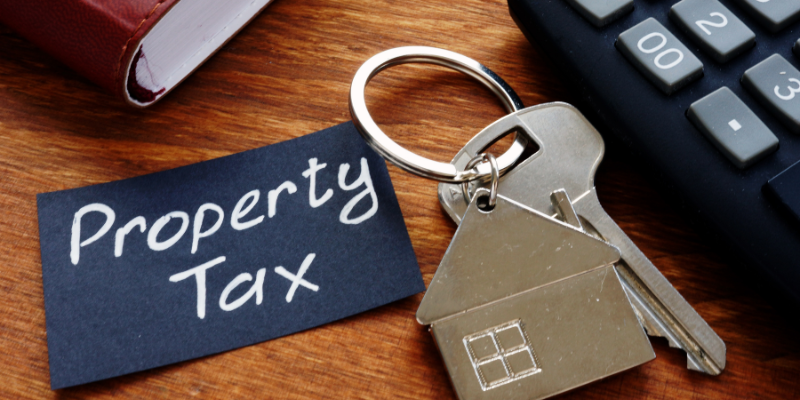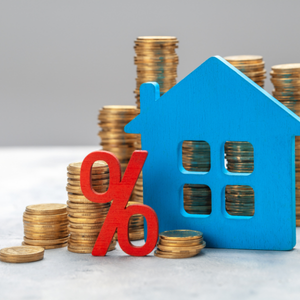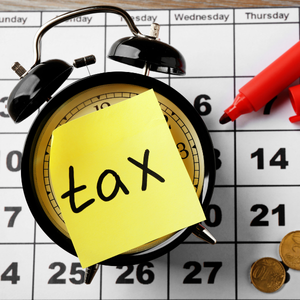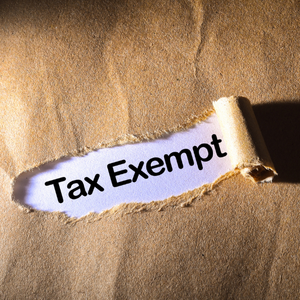
We’ve prepared this complete guide for you on property tax rates for Charlotte, NC, for 2025. Charlotte’s property tax rates for 2025. Understanding local tax rates is vital for financial, investment, and planning purposes. For current residents, homebuyers, and property investors, this guide looks at the property tax system, how the rates are determined, current trends, and projections for the future. Understanding this system will help you make informed and financially sound decisions. Also, for your convenience, tax planning is made easier by our property tax calculator. Use it to assist you in determining properties in Charlotte that will benefit you.
Brief Overview
For effective financial planning, knowing Charlotte, NC’s property tax rate for 2025 is vital. This guide includes how property taxes are calculated, how much they cost currently, critical timelines, and what happens if they’re not paid. Also included is an overview of the tax exemptions that help reduce tax burdens for qualifying residents, like the homestead and veteran exemptions. This guide includes a property tax calculator. This guide will help homeowners and investors make savvy financial decisions and stay active in the community development of Charlotte, while also saving for the future.
Key Highlights
- Learn how property taxes work in Charlotte based on assessed property values and millage rates.
- Charlotte property and county taxes are combined, so in 2025, taxes are projected to be 1.31% of the assessed value.
- Property tax bills are sent in July, and taxes are due on January 5 of the following year.
- When taxes are unpaid, there are high penalties, the risk of a lien, and even foreclosure.
- Residents can have liability taxes due to exemptions for seniors, veterans, and the disabled.
Understanding Charlotte, NC, Property Tax Rates

Learning about the property tax rates in Charlotte, North Carolina, can be very beneficial to the residents. This is because property taxes help pay for the development of the community by funding schools, safety, and roads. Knowing how the taxes are calculated and what the current rates are is really helpful to current homeowners and buyers, as they will be able to determine how to budget for the incoming costs. This guide will explain how Mecklenburg County calculates property taxes and what the 2025 property tax rates are so that you will have the most up-to-date information on property taxes.
How Are Charlotte Property Taxes Calculated?
Charlotte taxes come from a property’s assessed value, which is set by the county tax assessor every four years. Property taxes account for the value of comparable sales, market trends, and property conditions. Once assessed, the value is multiplied by the millage rate, which is a result of the combined county and city votes that fund schools, public safety, and community service.
Homeowners should then look to the effective tax rate to identify exemptions and credits that lower their expenses. Charlotte takes a community-focused approach, allowing for the effective tax rate to account for tax obligations that property owners have. Proactive financial inputs, tax calculators, and a thorough understanding of assessed property values are essential for smart budgeting. A clear understanding of how Charlotte property taxes are calculated will contribute to the community.
Example: Calculating Charlotte Property Taxes
Suppose you own a home in Charlotte with an assessed value of $350,000. The combined city and county property tax rate for 2025 is approximately 1.31% of assessed value.
Step 1: Convert the tax rate to a decimal
1.31% ÷ 100 = 0.0131
Step 2: Multiply the assessed value by the tax rate
$350,000 × 0.0131 = $4,585
Step 3: Apply any exemptions (optional)
If you qualify for a homestead exemption of $25,000:
$350,000 − $25,000 = $325,000
$325,000 × 0.0131 = $4,257.50
Result: Your annual property tax would be $4,585 without exemptions, or $4,257.50 with the homestead exemption.
What Are the Current Charlotte Property Tax Rates?
Tax rates in Charlotte will be of consideration in 2025 for people looking to own or buy property in Charlotte. This is made up of the city (0.48%), county (0.83%), and other local taxes, which total to about 1.31% of a property’s assessed value. These rates are subject to change every year according to the regional budget and infrastructure spending or through local measures voted on by residents.
Tax rate exemptions and credits, such as homestead, senior, and disabled resident exemptions, explain why a homeowner’s effective tax rate may be lower than the taxable value of Charlotte property. Knowing the tax rate and how it can be reduced or exempted is key for a homeowner to help the city grow and pay for public services.
| Tax Component | Current Rate | Purpose | Key Considerations |
|---|---|---|---|
| County Tax | 0.8157% | Funds county services such as schools, public safety, and infrastructure. | Includes possible exemptions for seniors and veterans, subject to rate reviews. |
| City Tax | 0.3450% | Supports city initiatives, including police, fire services, and public transportation. | Residents may qualify for homestead exemptions, which are important for urban planning strategies. |
| Special District Tax | Varies by district | Specific projects like landscaping, sanitation, and localized improvements. | Rates depend on the district; review if the property falls within these areas. |
| School Tax | Included in County Tax | Dedicated to educational funding and school district maintenance. | Potential offset by tax credits; critical for assessing long-term educational investments. |
This table summarizes Charlotte, North Carolina’s property tax structure to help property owners manage their investments fiscally.
Key Tax Dates for Charlotte Property Owners

Charlotte property owners have to keep critical tax dates in mind to avoid losing money from untimely payments and other penalties. Knowing these deadlines also helps in strategic planning. This shows how important it is to stay on top of local tax calendars. Homeowners can avoid the pain of late payments and other penalties. Property owners should pay these taxes on time. Not only does it provide financial benefits, but it also helps maintain the public services that every community relies on. Paying taxes gives property owners the confidence that it is on time every time and empowers them to avoid other burdens and liabilities.
Important Deadlines for Tax Payments
Property tax bills are usually mailed in July, with a deadline for payment scheduled for January 5th of the following year. Financial planning becomes a lot easier with a good understanding of the due dates. As such, a homeowner with a positive experience will attempt to offset late payment penalties, interest charges, and budget disruptions. Since property tax bills are predictable, homeowners will try to estimate a payment and set aside that amount, or automate a bank withdrawal, to ensure timely payment.
Property taxes are a primary source of funding for essential municipal services such as schools and public safety, as well as the maintenance of public and social infrastructure. Information gaps, easily filled by local government and the Internet, will generally lead to poor personal and community outcomes. In this case, the community outcome is the timely payment of property taxes, and the individual outcome is poor budget management. To assist budget management and the community as a whole, online calculators should be made available.
Consequences of Missing Tax Deadlines
The consequences of not meeting property tax deadlines in Charlotte can be severe. Failing to pay the taxes by the January 5th deadline will result in penalties. Those penalties will not be a one-time fee. They will be charged until the property taxes are paid for the entire year. In Charlotte, failing to pay property taxes will ultimately result in the city placing a lien on the property. That means the owner will be unable to sell or refinance the property until the taxes are paid.
Tax liens are not the ultimate consequence. The city can ultimately foreclose on the property, meaning the owner will lose the property, and the city will sell it. Doing this will allow the city to recover the unpaid taxes. There are tax payment plans and extensions for those who need them. It is in the best interest of the homeowner to be aware of the risks and consequences and take the necessary steps to mitigate them. Active and engaged homeowners will protect their financial stability and retain their home in Charlotte.
Tax Exemptions and Benefits

For Charlotte residents, knowing tax exemptions and benefits goes a long way in decreasing property tax liabilities. In Mecklenburg County, several relief exemption programs for homeowners will change effective tax rates. For each tax program, homeowners will need to analyze and interpret their tax rates and programs. These programs include homestead exemptions and relief exemptions for seniors and veterans; it can pay to know these programs by heart to ensure timely applications. In this article, we outline each exemption Charlotte residents can receive and their respective applications to ensure tax savings are maximized.
Available Tax Exemptions for Charlotte Residents
Residents of Charlotte in Mecklenburg County are able to have several options when it comes to property tax exemptions to help relieve some of the property tax costs. The homestead exemption is especially beneficial for seniors, veterans, and disabled persons, as it lowers the taxable value of the property. Applications must meet age, income, or disability qualifications as well as provide documentation to support the claim, such as proof of residency or certification.
Other programs include the Elderly or Disabled Exclusion, which partially appraises value exclusion, and the Circuit Breaker Tax Deferment Program, which is a tax deferment based on income. The Disabled Veterans Property Tax Homestead Exclusion may also apply to disabled veterans. Active information on benefits eligibility, legislative changes, and tax-wielding parties or workshops on the subject will significantly aid in the goals of tax liability reduction and overall long-term financial success.
Consider the following strategies to optimize tax exemptions:
- Check for age, income, or disability tax relief provisions for your property.
- Take advantage of homestead exemptions to lower property tax liability.
- Consider tax credits for energy-efficient property improvements.
- Reduce your taxable income by contributing to an IRA or 401(k).
- Consult a tax professional to identify tax exemptions you may not be aware of and to improve your filing position.
- Document your charitable giving, as it may be tax-deductible.
- Consider bunched deductions in alternate years to defend a position of surpassing the standard deduction.
- Review tax deductions for any changed provisions, tax laws, or your personal circumstances.
If you put these strategies into practice, you will maximize the available tax exemptions and improve your financial position.
How to Apply for Tax Exemptions
To apply for property tax exemptions in Charlotte, first determine which exemptions you qualify for, such as the homestead exemption or the senior citizen reduction. These are based on age, income, or disability. Homeowners need to obtain documentation such as proof of residency, age, disability, income, etc. Homeowners also need to apply before the deadline set by Mecklenburg County in order to receive benefits for the current tax year.
The applications are processed by the Mecklenburg County Assessor’s Office. To improve services, many applications are now available for online submission. Homeowners are expected to provide follow-up on their applications. This is to ensure all documentation is received, especially for eligibility. For this reason, the county offers numerous resources, including workshops, to help guide taxpayers. This is also to ensure homeowners receive all tax exemptions. This, not the resources, helps homeowners remain compliant with tax regulations.
The 2025 Charlotte, NC property tax rate is essential for budgeting and financial planning. This guide covers all property tax factors and includes simple tools like our tax calculator to estimate payments. Keeping up with local government exemptions and changes can save more. This knowledge helps homeowners and buyers make data-driven financial decisions. Be proactive about property taxes to receive abatements and responsibly contribute to Charlotte’s thriving community.
Do you need to sell your home in Charlotte, NC? Whether you want to sell your Charlotte house faster or are looking for trusted cash home buyers in North Carolina, Cardinal Home Buyers is here to help. We provide fair cash offers, handle all the details, and make the process seamless. Ready to sell or have questions? Contact us at (919) 609-5173 for a no-obligation offer. Get started today!
FAQs
How are property taxes calculated in Charlotte, NC?
Charlotte property taxes depend on assessed value and millage rate. The Mecklenburg County tax assessor determines the assessed value, and the millage rate is per $100. If your property is worth $300,000 and the tax rate is 0.60%, your annual tax is $1,800.
Which Charlotte property tax deadlines are crucial?
Property tax bills are mailed in July and are due January 5th. Missing the deadline results in interest and possible liens or foreclosure.
What are the current property tax rates in Charlotte, NC, for 2025?
Charlotte’s city and county property tax rate is 1.31% of assessed value in 2025. This includes 0.48% city and 0.83% county taxes.
Can Charlotte residents get property tax exemptions?
Charlotte provides homestead exemptions for seniors, veterans, and disabled people. These exemptions reduce property taxes, saving money.
How do I get Charlotte tax exemptions?
You must submit proof of residency or age to the Mecklenburg County Assessor’s Office to apply for tax exemptions. Application deadlines must be met to ensure exemptions for the current tax year.
Helpful Charlotte Blog Articles
- Charlotte, NC, Home Closing Costs Calculator
- Charlotte, NC, Property Tax Rate
- Charlotte, NC, Capital Gains Tax Calculator
- Is Charlotte, NC, Safe
- Charlotte, NC, Neighborhood Map
- Fun Facts About Charlotte, NC
- Free Things to Do in Charlotte, NC
- Charlotte, NC, Cost of Living
- The Best and Worst Neighborhoods in Charlotte, NC
- Do All Heirs Have to Agree to Sell Inherited Property in Charlotte, NC?
- How Do I Short Sell My House in Charlotte, NC

